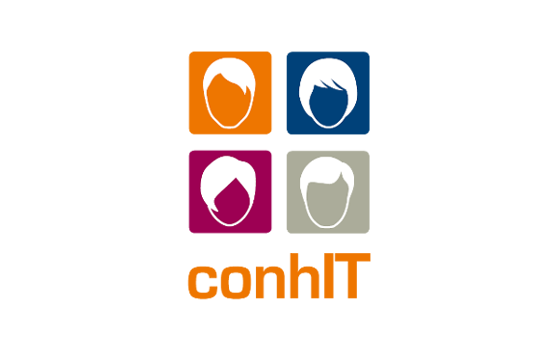 25 - 27 April 2017, Berlin, Germany.
25 - 27 April 2017, Berlin, Germany.At the tenth conhIT - Connecting Healthcare IT the Congress organisers are once again inviting healthcare IT players to contribute to the programme. The conhIT Congress offers visitors and exhibitors at Europe's leading healthcare IT event an ideal platform for finding out about innovations, trends and the industry's prospects. In the past the reactions from visitors to the congress have been very positive, due in particular to the mainly practical approach of the papers and the relevance of the selected topics.
Taking as its slogan '10 years of conhIT - combining health and innovative IT', the Congress invites candidates to submit their papers for a total of nine sessions. They can choose from the following topics:
- The benefits of robotics and the Internet of Things for Hospital IT
- Mobile health and apps
- Use of IT in quality-oriented, cross-sectoral care management
- IT-based interface management in nursing - reality or fiction?
- Securing revenues through IT-based management
- Poles apart or the need to act?
- Implementing the health telematics infrastructure and eHealth
- Regional health care in the age of demographic change
- Improving the efficiency of processes - added value through IT in modelling and management
Papers must be submitted during the period from 17 October to 18 November 2016. It is not planned to extend the deadline. Companies who wish to submit a paper must be registered as exhibitors at the Industrial Fair. For further details and in order to register please visit www.conhit.com.
The advisory committee decided on the main topics at a meeting on 28 September in Berlin. More than 50 committee members are working to organise a quality programme of outstanding events and making every effort to satisfy the audiences' needs. The list of committee members is effectively a who's who of the health IT industry and includes high-ranking representatives of associations, administrations, ministries, industry and science.
About conhIT - Connecting Healthcare IT
conhIT targets decision-makers in IT departments, management, in the medical profession, nursing, doctors, doctors' networks and medical care centres who need to find out about the latest developments in IT and healthcare, meet members of the industry and make use of opportunities for high-level advanced training. As an integrated event, over a period of three days conhIT combines an Industrial Fair, a Congress and Networking Events that are of particular interest to this sector. Launched in 2008 by the German Association of Healthcare IT Vendors (bvitg) as the meeting place for the healthcare IT industry and organised by Messe Berlin, this event recorded 451 exhibitors and around 9,000 visitors in 2016 and has become Europe's leading event for the healthcare IT sector.
conhIT is organised in cooperation with the following industry associations: the German Association of Healthcare IT Vendors (bvitg), the German Association for Medical Informatics, Biometry and Epidemiology (GMDS) and the German Medical Informatics Professional Association (BVMI). The German Association of Hospital IT Managers (KH-IT) and the Chief Information Officers of University Hospitals (CIO-UK) provide contributions to the subject matter.